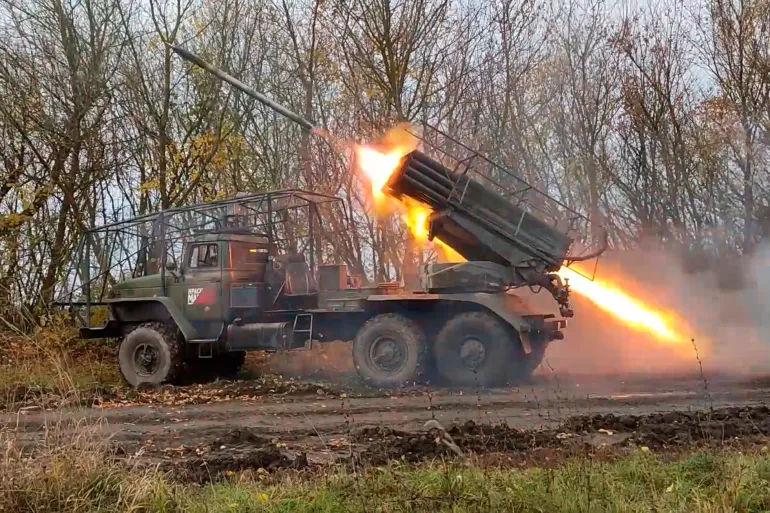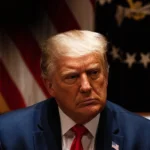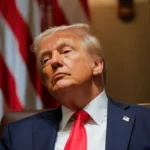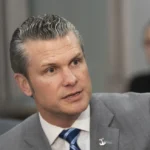A high-stakes diplomatic meeting in London aimed at advancing peace in Ukraine has been unexpectedly downgraded, underscoring growing tensions between Kyiv and Washington over the war’s endgame—particularly the future of Russian-occupied territories like Crimea.
The summit, originally intended to bring together senior U.S., U.K., and European officials, was thrown into uncertainty after U.S. Secretary of State Marco Rubio abruptly pulled out. State Department spokesperson Tammy Bruce attributed his absence to “logistical issues,” but the implications have been more than logistical.
London’s Foreign Office confirmed Wednesday that the summit would proceed at a lower level, stating, “Official level talks will continue but these are closed to media.”
This downgrade reflects broader disagreements about the path to peace. The U.S. is pushing Ukraine to consider a framework that includes recognizing Russian control of Crimea—annexed by Moscow in 2014—and potentially solidifying current front lines as a basis for ceasefire. An official familiar with the proposal said it also includes a formal ceasefire across active battle zones.
Such concessions, however, are non-starters for Ukraine.
“Ukraine will not legally recognize the occupation of Crimea,” Ukrainian President Volodymyr Zelensky said on Tuesday. “There is nothing to talk about. It is against our constitution.”
U.S. Vice President JD Vance, speaking from India on Wednesday, emphasized America’s frustration with the lack of progress in negotiations. “We’ve issued a very explicit proposal to both the Russians and Ukrainians, and it’s time for them to either say yes or for the U.S. to walk away from this process. We’ve engaged in an extraordinary amount of diplomacy, of on-the-ground work.”
When pressed to clarify whether the U.S. intends to freeze territorial lines as they currently stand, Vance replied, “No, I didn’t say that. What I said is the current line, somewhere close to them is where you’re ultimately, I think, going to draw the new lines in the conflict. Now of course, that means the Ukrainians and the Russians are both going to have to give up some of the territory they currently own. There’s gonna have to be some territorial swaps.”
Rubio’s withdrawal has led to Keith Kellogg, President Donald Trump’s special envoy for Ukraine and Russia, taking the lead at the London talks. Kellogg is now tasked with advancing what many see as a contentious but crucial phase in the search for peace.
The talks in London follow earlier meetings in Paris, where U.S., U.K., French, and German officials discussed the American ceasefire plan. European allies have been trying to mediate between Kyiv’s red lines and Washington’s increasing impatience.
Trump’s Middle East envoy, Steve Witkoff, is expected in Moscow this week for further negotiations with Russian President Vladimir Putin. The Kremlin has confirmed the visit but has yet to release additional details.
Meanwhile, the war continues with renewed intensity. Following a brief Easter ceasefire that both sides accuse the other of violating, violence has surged.
On Wednesday, a Russian drone strike killed nine civilians and wounded at least 30 others near the city of Marhanets, according to Ukrainian authorities. Russia’s National Guard claimed it intercepted 17 Ukrainian drones overnight.
Back in Washington, White House Press Secretary Karoline Leavitt said Tuesday the peace talks are “hopefully moving in the right direction,” but declined to detail what “stepping back” from negotiations might mean.
While Trump has stated that he wants to see “an enthusiasm to want to end it” from both Kyiv and Moscow, Rubio warned last week that the U.S. could walk away from diplomacy entirely if the process stalls.
Putin has recently signaled openness to direct negotiations with Ukraine. On Monday, he hinted at discussing a ceasefire that avoids civilian targets, though details remain unclear. Kremlin spokesperson Dmitry Peskov confirmed Putin’s remarks, saying he referred to talks “with the Ukrainian side.”
The last direct talks between Ukraine and Russia occurred during the initial weeks of the 2022 invasion. Whether this flurry of diplomacy can bring the parties back to the table remains uncertain—but the tensions surrounding this week’s London summit suggest that the path ahead will be difficult.





